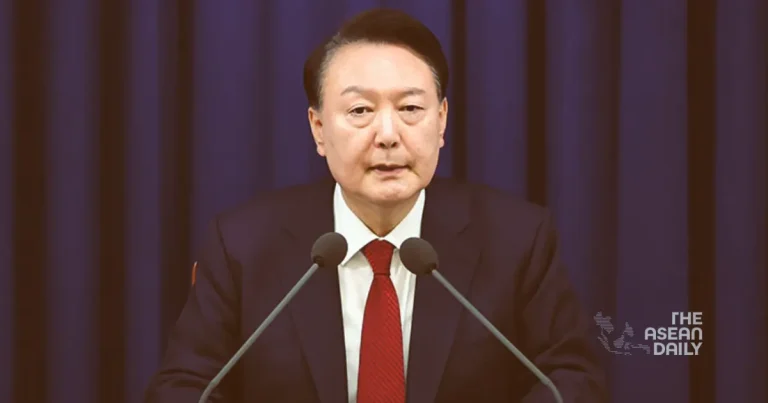19-12-2024 (SEOUL) South Korean President Yoon Suk Yeol has declined to cooperate with investigators probing his controversial martial law declaration, as the nation grapples with an unprecedented constitutional crisis.
The embattled president failed to appear before a joint investigative panel on Monday, comprising representatives from the Defence Ministry, police force, and anti-corruption watchdog, multiple sources confirmed.
Investigators’ efforts to gather evidence have met significant roadblocks, with two attempted searches of the presidential office being rebuffed. Since parliament voted to impeach him on Saturday, President Yoon has maintained radio silence, proving elusive to authorities seeking his testimony.
Political analysts suggest Yoon, drawing upon his background as a prosecutor, may be orchestrating a calculated legal strategy to contest the insurrection charges through judicial channels.
“We’re witnessing a carefully crafted defence approach,” says Dr James Morton, director of East Asian Studies at Cambridge University. “Yoon’s legal acumen appears to be shaping his response to these extraordinary circumstances.”
The Constitutional Court faces its own challenges, with three vacant positions potentially impacting the impeachment verdict. A successful impeachment requires six votes from the nine-member panel, meaning the current composition demands unanimous agreement for Yoon’s removal.
The opposition Democratic Party is racing against time to fill these vacancies before year’s end, whilst the president’s People Power Party has boycotted nomination discussions.
Adding another layer of complexity, opposition leader Lee Jae-myung, who stands to gain from Yoon’s removal, faces his own legal jeopardy. A recent election law violation conviction could disqualify him from office if upheld within six months.
Public sentiment has turned sharply against Yoon, whose approval ratings have nosedived to 11% following the martial law controversy. Demonstrations have erupted across Seoul, with citizens demanding accountability for what many view as an abuse of presidential power.
“The current political climate bears little resemblance to previous impeachment scenarios,” notes Dr Sarah Williams, a Korean politics specialist at King’s College London. “The combination of record-low approval ratings and the gravity of a martial law declaration creates an unprecedented situation in South Korea’s democratic history.”




